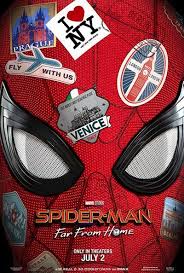This post will have spoilers for Marvel’s Avengers movies.
I recently started a re-watch of the MCU’s Avengers and Captain Americafilms. This has coincided with the one-year anniversary of the release of Avengers: Endgame and people are sharing videos of crowd reactions to key moment from that movie. A popular moment to share is when Captain America in the climatic battles against Thanos wield Mjolnir. It is a moment when the audience reacts wildly and enthusiastically and even after having seen the movie several times both in the theaters and at home one that still stirs my own blood.
Earlier in the cycle of MCU movies, specifically in Avengers: Age of Ultron, at a celebratory party various characters attempt to lift Mjolnir but the enchantment upon the weapon specifies only one who is worthy can wield the hammer and with it the powers of Thor. Character after character make the attempt and Thor’s hammer remains utterly immobile. When Steve Roger, Captain America and in many ways the moral compass of the MCU, tries the hammer rocks and Thor immediately reacts with apprehension but Cap doesn’t lift it and Thor relaxes.
The question becomes; When did Cap become worthy? Or Was he always worthy and chose not to lift the hammer at the party?
It can be argued that he was always worthy and felt the hammer rock under his grip and did not lift it to save his friend embarrassment. (Not to mention that Cap lifting it early in the movie would have undercut Vision’s wielding of Mjolnir and proving his worthiness to the Avengers when they doubted him.) Steve is a decent fellow and would be very considerate of Thor’s pride but I am not persuaded by this line of argument. I think at the time of Age of Ultron Cap was nearly worthy but not yet there.
In Captain America: Civil War Steve paternalistically keeps the truth of the murder of Tony Stark’s parents secret from Tony and this lie ruptures the Avengers. At the end of the film in his letter to Tony he confesses that really he wasn’t protecting Tony but himself. Steve too scared to confront the hard truth with Tony. It is this moment of self-realization that clears that last of the moral clutter away from Steve’s nature and I think allowed him to be worthy for that amazing moment in Endgame.


